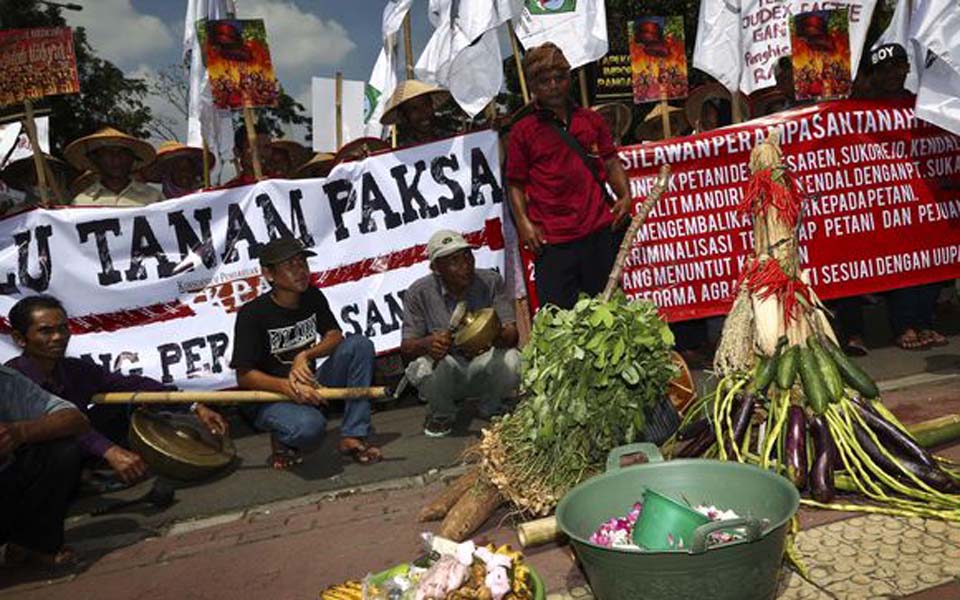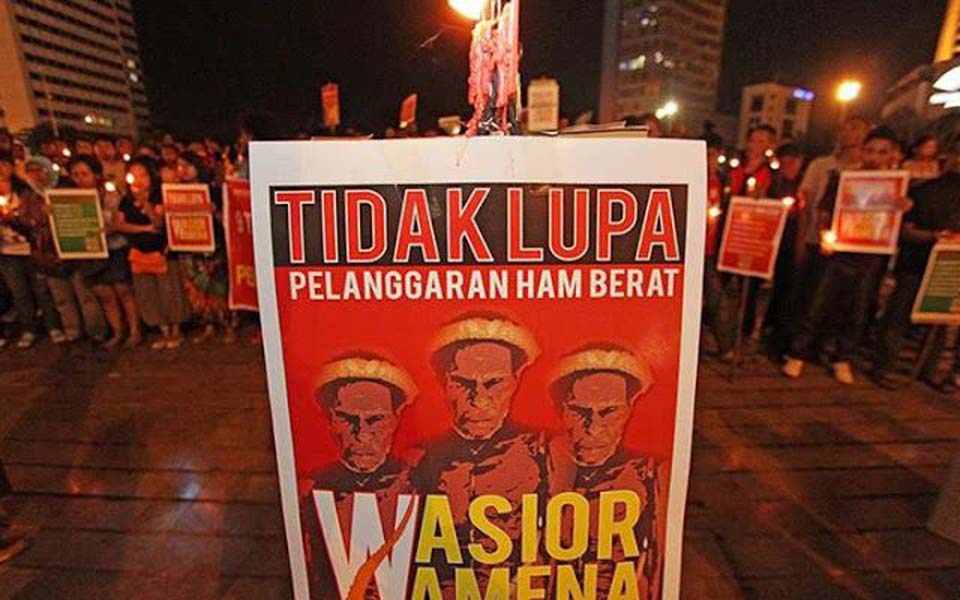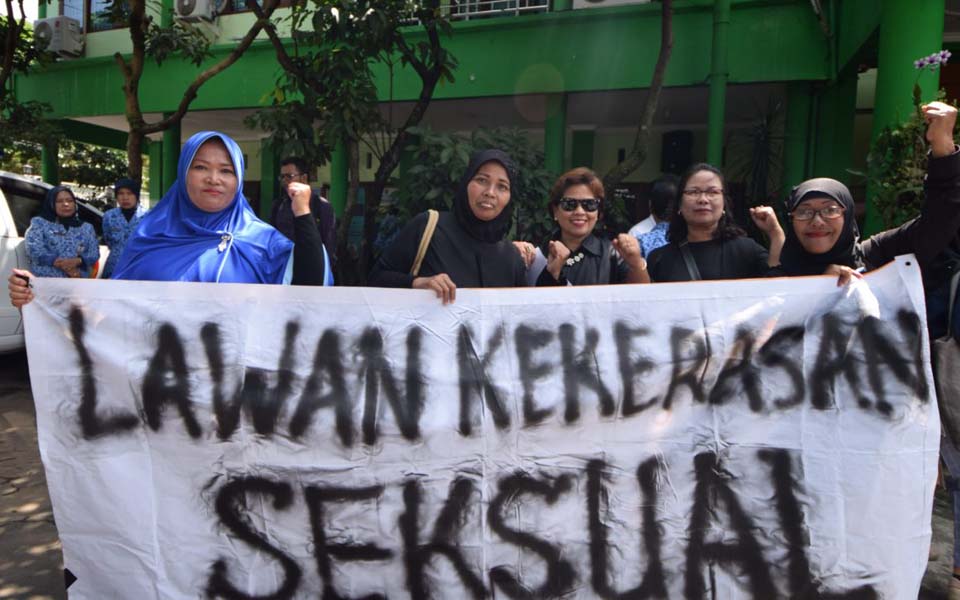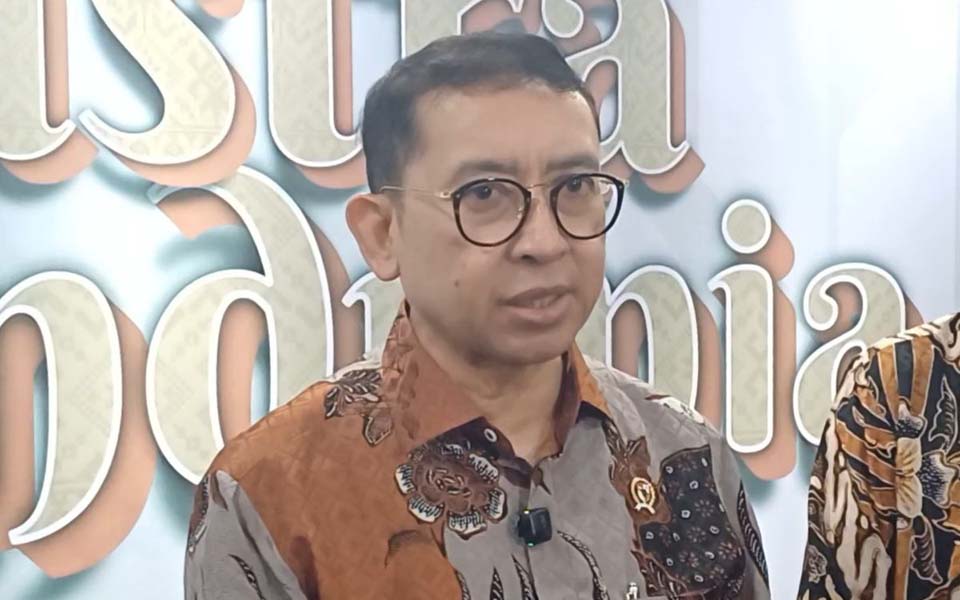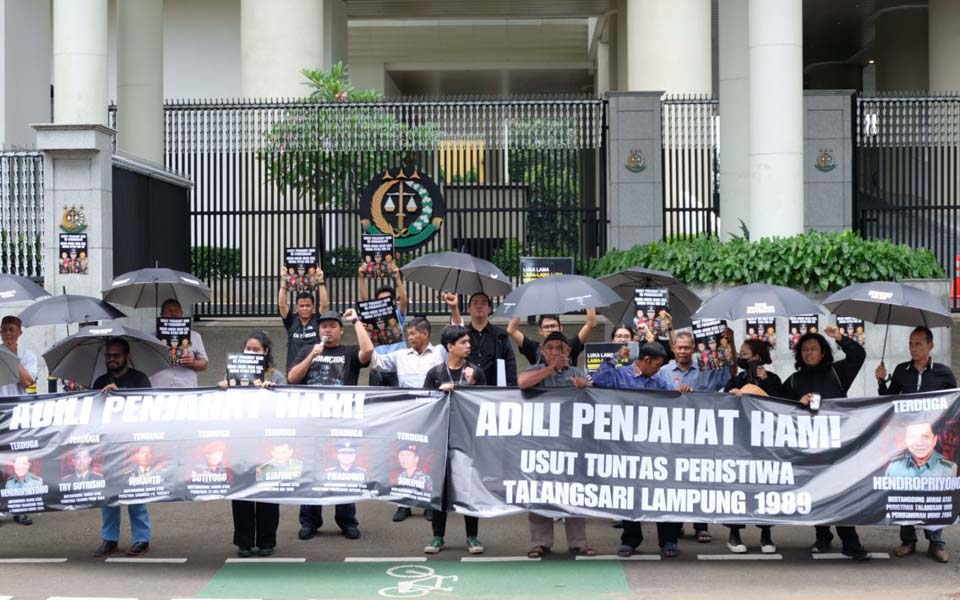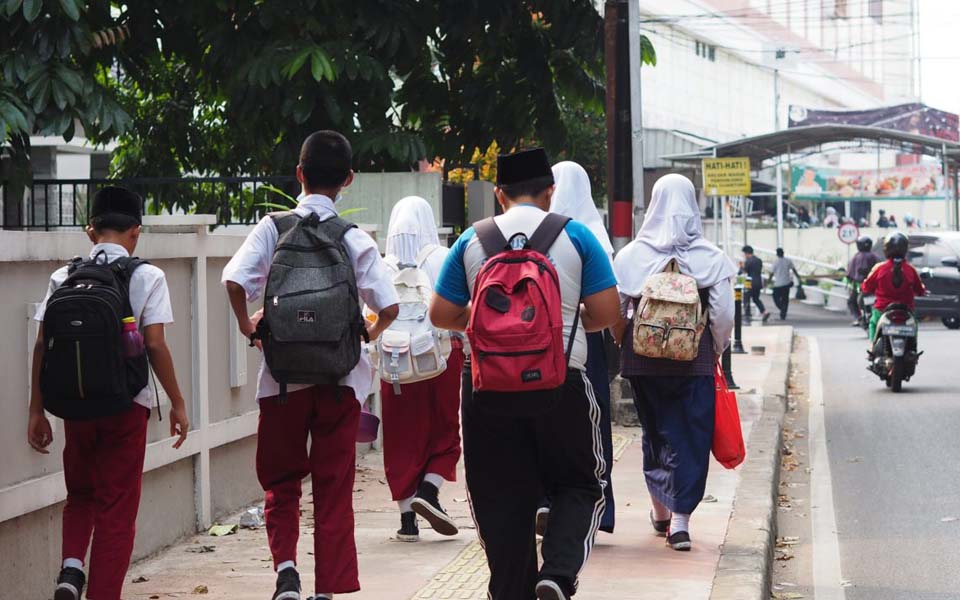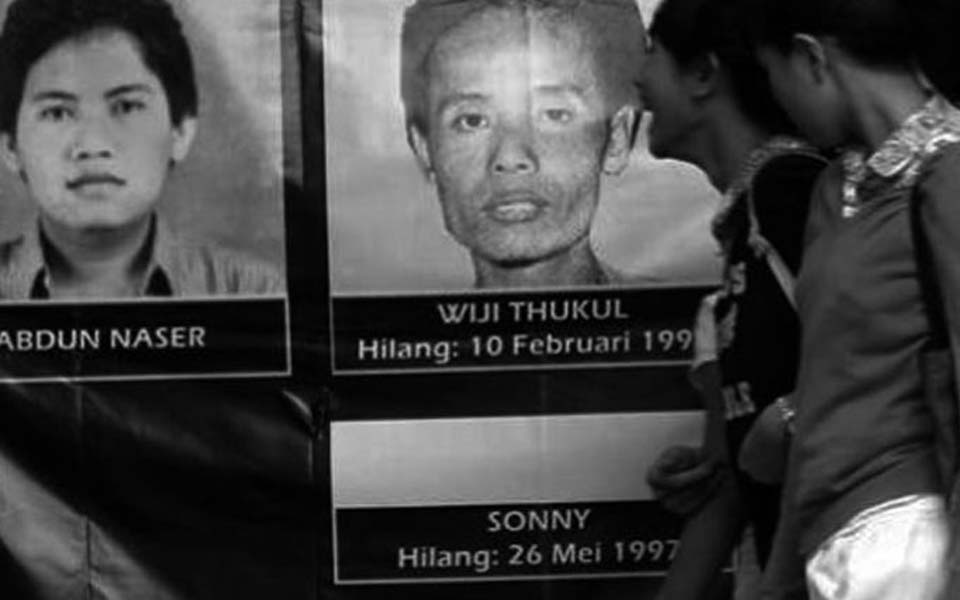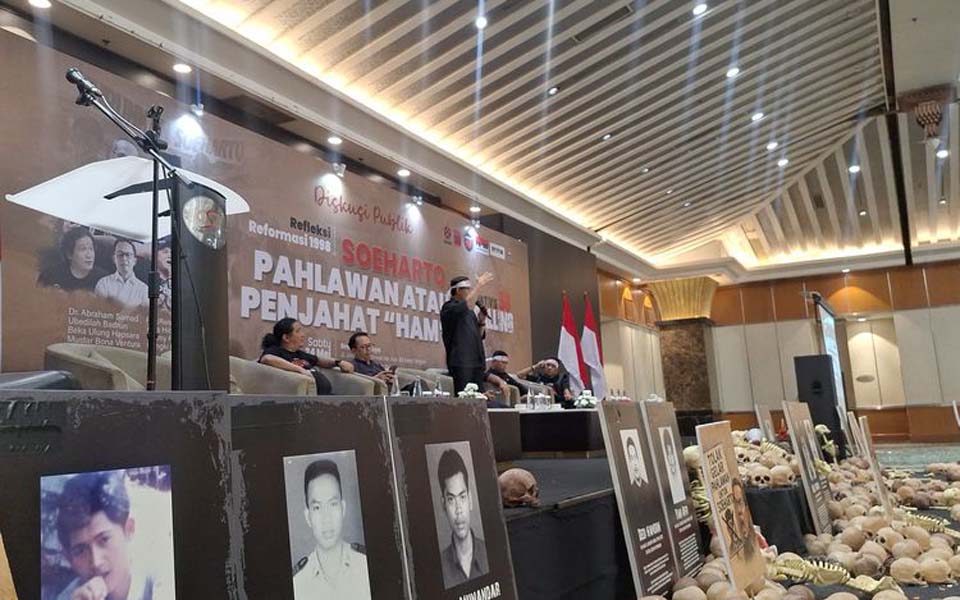Jakarta – President elect President Joko “Jokowi” Widodo appeared dashing and bold as he addressed the issue of investment in his Indonesia Vision speech in Sentul, West Java, on Sunday July 14. He said he would “stand by and defend” investors and claimed he will pursue and soundly thrash anyone who obstructs investment.
He justified this by saying that bringing in investment will create more jobs. The former Jakarta governor gave a clear message that no one should be allergic to investment.
I will pursue, I will control, I will check and I will soundly thrash [anyone] if necessary! There should no longer be any obstructions to investment because this is the key to creating more jobs”, asserted Widodo.
Despite talking up investment, infrastructure, development and a host of other things, Widodo did not once touch on the issues of law enforcement or human rights (HAM).
Green light for violations
Lokataru Law and Human Rights Foundation director Haris Azhar is concerned that in the name of investment, Widodo’s threat of “soundly thrashing” anyone who obstructs this is a giving a green light to those who violate human rights.
Azhar warned that investment, law enforcement and human rights must run concurrently. Communities cannot be allowed to be marginalised in the name of investment and development.
“For example, don’t obstruct investors, in the name of unity. Then he said he would soundly thrash anyone who obstructs investors. Very scary”, said Azhar when speaking with CNN Indonesia on Monday July 15.
His speech, continued Azhar, sounded as if the ordinary Indonesian people will be forced to happily accept investors under the guise of the people’s welfare and economic development. In the end, said Azhar, the ordinary people will be forced to become labourers for investors.
“He didn’t invite us to be productive, instead he is pushing through his desire for us to become labourers for investors”, said Azhar.
When he talked about investment, continued Azhar, Widodo did not discuss the consequences that will have to be accepted by the people. Azhar admitted to feeling sad that Widodo did not address the problem of people who land has been taken by developers, farmers whose land is shrinking, livestock breeders forced to sell their products at low prices.
“Where is the space for those (people who have been evicted from their land) in (Jokowi’s) speech last night”, asked Azhar.
Sidelining human rights
Commission for Missing Persons and Victims of Violence (Kontras) researcher Rivanlee Anandar meanwhile believes that Widodo largely sidelined the issue of human rights and law in the name of economic growth. Moreover upholding human rights in the current era is still impartial.
On the one hand Widodo wants to develop infrastructure, bring in capital in the name of prosperity and fulfilling people’s economic rights. But on the other hand, continued Anandar, Widodo sidelines the people’s political and social rights.
“For example, in 2016, the police issued SP3’s (Letter of Order to Stop Investigation) against 15 companies who were strongly suspected of burning down forests or cases of land takeovers in various places such as the construction of the Kulon Progo [international airport in Yogyakarta]”, said Anandar.
The state’s indecisive position in responding to human rights problems, continued Anandar, has a huge potential to give rise to violations. This will impact on the weakness of the state’s role with regard to certain groups, in this case capitalists who attack venerable groups ie the ordinary people.
Anandar is sure that Widodo’s speech last night, particularly the themes of investment and infrastructure, will have the potential to increase land conflicts between the rich and the poor. It is not infrequent that in the name of investment, business and infrastructure, that the ordinary people are pushed aside.
Agrarian conflicts
According data from the Agrarian Reform Consortium (KPA) on agrarian conflicts in 2018, some 807,000 hectares of land in Indonesia were subject to conflicts.
Agrarian conflicts were dominated by land seizures in the plantation sector amounting to 65,660 hectares, forestry 54,060 hectares, mining 49,690 hectares, property 13,000 hectares and infrastructure 4,859 hectares.
The spread of these conflicts is an increase on 2017 when there were around 520,490 hectares of land conflicts. The number of agrarian conflicts however was not as high prior to the Widodo government’s launch of its ambitious infrastructure program. In 2014, the number of agrarian conflicts reached 2.86 million hectares.
“There is a good possibility that the potential for land conflicts will grow, Kontras predicts that there will be an increase in the number of cases over the next two years in terms of land seizures and the criminalisation of local people defending their land”, said Anandar.
Need for care
KPA Secretary General Dewi Sartika meanwhile said that Widodo’s speech shows that the government does not understand that facilitating permits cannot be done across the board. In fact, he said, the process of issuing permits particularly permits for plantation and forestry concession rights must be done carefully.
“So it’s not a problem of obstructing or being thrashed. The inelegance of the president’s speech was like it was full of threats. Ordinary people opposing infrastructure doesn’t mean they reject development, but there is the problem of injustice. People’s rice fields are bulldozed, converted to non-agricultural [land], tens of thousands of villages and residential areas are overlapped by concession claims”, said Sartika.
According Sartika, there is a good possibility that Widodo’s speech will trigger more agrarian conflicts. This is because agrarian conflicts most often occur because easing investment is generalised.
“The maladministration of permits, manipulations of land, then closing their eyes to villages, residential areas, the fields worked by the people which creates overlapping claims and agrarian conflicts. Because speed is being demanded and giving special treatment to big investors”, said Sartika. (sah/ain)
[Translated by James Balowski. The original title of the article was “Redup Isu HAM dan Kilap Investasi di Pidato Jokowi”.]





